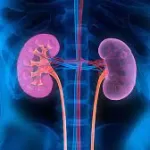A groundbreaking study conducted by researchers at the University of North Carolina at Chapel Hill unveils the potential benefits of combining sugar-based taxes on beverages with targeted subsidies for minimally processed foods and drinks. Published in the American Journal of Preventive Medicine, the study projects that such policies could prompt low-income consumers to reduce their consumption of sugar-sweetened beverages while increasing purchases of fruits, vegetables, and healthier drinks, particularly in households without children.
The study, led by Dr. Shu Wen Ng and Dr. Pourya Valizadeh, utilized a sophisticated model to simulate the impact of national-level taxes on less-healthy, ultra-processed foods and beverages. The revenue generated from these taxes would then be used to subsidize purchases of minimally processed fruits, vegetables, healthy proteins, and unsweetened drinks for low-income households participating in food assistance programs.
Dr. Ng, a Distinguished Scholar in Public Health Nutrition at UNC-Chapel Hill, emphasized the equity-enhancing nature of this approach, stating, “Our findings show that we can support healthier dietary patterns in the US by directing revenues from national taxes on ultra-processed products high in sugar, sodium, and/or saturated fats towards additional benefits to help low-income households purchase more fruits, vegetables, and other healthier alternatives.”
The study’s model predicts that such combined policies would not only improve the nutritional quality of grocery purchases among low-income households but also achieve these outcomes without increasing overall costs or diminishing consumer satisfaction. By effectively shifting the relative prices of unhealthy and healthy foods, these policies aim to promote health equity and address nutritional disparities in underserved communities.
Dr. Valizadeh, who completed the research during a post-doctoral fellowship at UNC-Chapel Hill, highlighted the broader implications of these findings. “The taxes should not be primarily about generating revenue, but rather shifting the relative prices of unhealthy vs. healthy foods so that lower-income families in the US can more reliably attain foods and beverages that support health,” he said.
The study’s recommendations align with recent congressional bills, such as the “GusNIP Expansion Act” and the “Opt for Health with SNAP (OH SNAP) Close the Fruit and Vegetable Gap Act,” which propose levying taxes on unhealthy beverages and expanding targeted subsidies beyond existing SNAP benefits for minimally processed foods and beverages.
Ultimately, this research underscores the potential of innovative policy approaches to promote healthier food choices among low-income populations and advance public health goals. By leveraging taxation and subsidies, policymakers can play a pivotal role in shaping a more equitable and nutritious food environment for all Americans.
The study is published in the American Journal of Preventive Medicine











